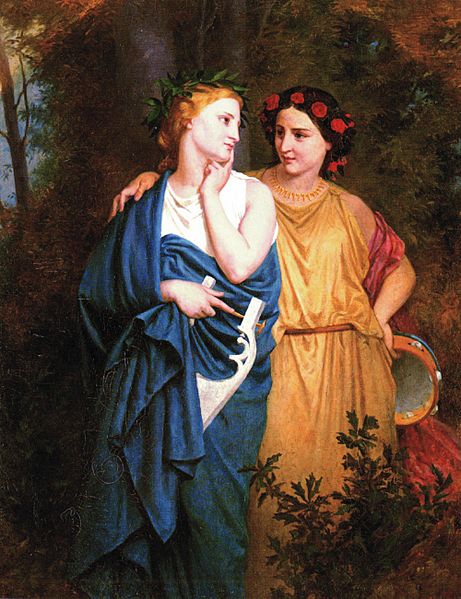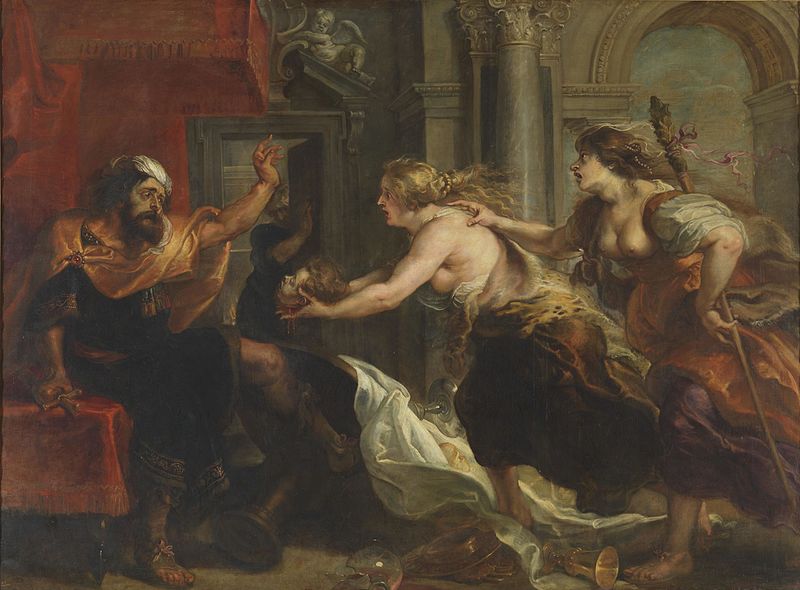PROCNE IN GREEK MYTHOLOGY
Procne was a Queen of Thrace in Greek mythology. Although a minor character, the story of Procne is one of transformation, as well as retribution.
Procne Daughter of Pandion
Procne was born a princess of Athens, for she was the daughter of Pandion I, King of Athens, and the Naiad nymph, Zeuxippe. Procne was thus sister to Philomela, Erechtheus and Butes.
Procne Queen of Thrace
|
When of age, Procne would be used as a gift as the alliance between Athens and Thrace was cemented, for King Tereus of Thrace had aided Pandion in his war with Labdacus’ Thebes. Procne would thus depart for Athens for Thrace, where, by marrying Tereus, she would become Queen of Thrace.
Several years passed, in which time Procne gave birth to Tereus’ son, Itys. |
|
As time passed though, Procne longed for Athens, and in particular, Procne longed to see her sister Philomela.
The Fate of Procne’s Sister
|
Tereus thus went to Athens, to see whether Philomela would return with him to visit her sister. Tereus when he first saw Philomela, lusted after her, and convincing Pandion and Philomela that Procne had died, also managed to convince Pandion to give him Philomela as his new wife.
Back in Thrace, before returning to the royal palace, Tereus raped Philomela, and in order that his deceit should not be discovered cut out the tongue of Philomela so that she might not tell anyone. . Philomela was then locked away in a hut in the forest, and was guarded night and day. Tereus then returned to his wife, and told Procne that Philomela had died in Athens, shortly after Procne had left. |
Philomela could not tell anyone of what had befallen her, but she would embroider her story into a tapestry, and this tapestry she would manage to have delivered to Procne.
During a feast in honour of Dionysus, Procne managed to rescue her sister. Procne and Philomela then plotted their revenge.
During a feast in honour of Dionysus, Procne managed to rescue her sister. Procne and Philomela then plotted their revenge.
The Revenge and Transformation of Procne
|
Procne’s revenge was extreme, for the sisters decided to kill Itys, Procne’s own son, and serve him as a meal to Tereus, and as Tereus finished this meal, Procne and Philomela presented the king with the head of his own son.
Procne and Philomela would flee the palace, but Tereus ran after them, with axe in hand. The gods though had observed all that had gone on, and as the chase took place, the three protagonists were transformed into birds. Tereus was transformed into a hoopoe, whilst Procne and Philomela were transformed into a nightingale and a swallow, although which was which, depends on the source being read. |
|
|
|
Colin Quartermain - Procne - 18th September 2021

